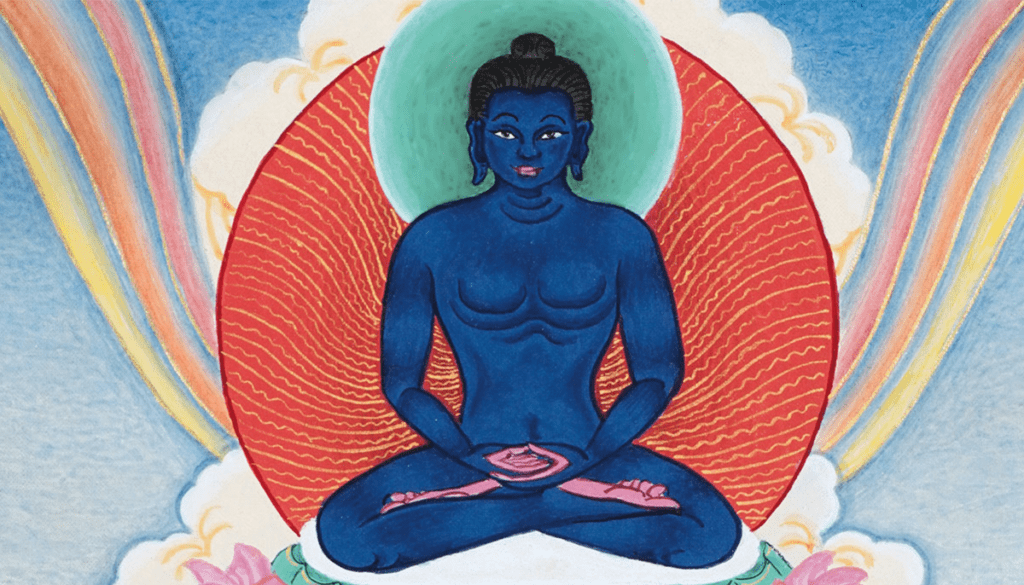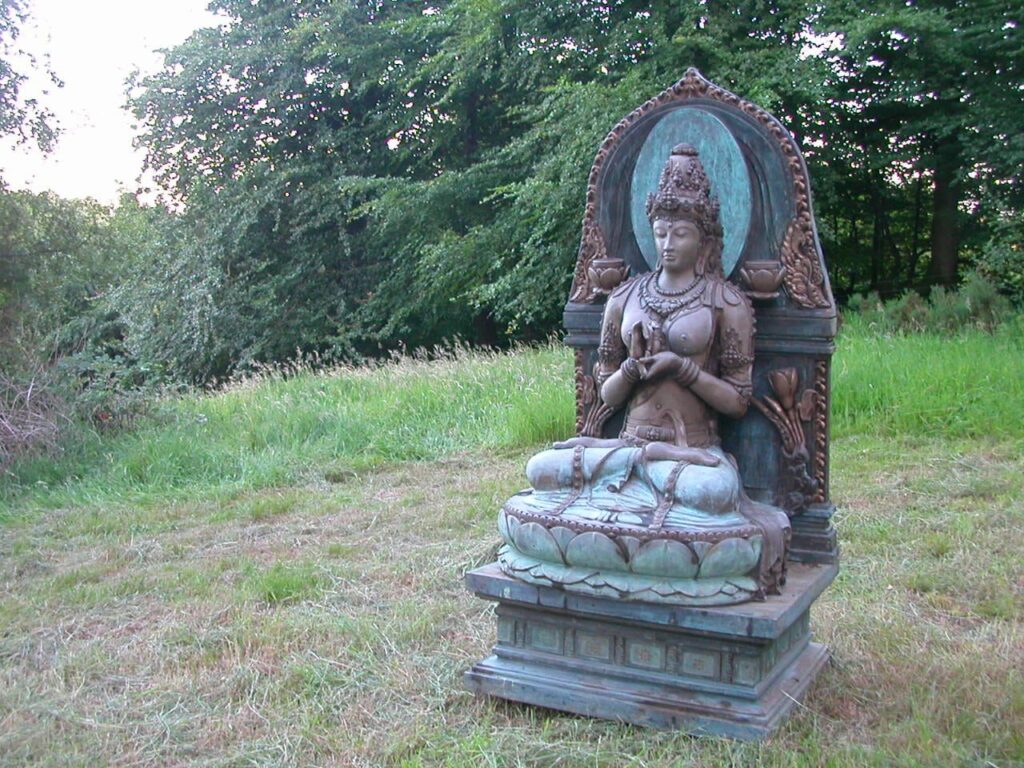Wisdom (Pali:panna; Sanskrit: prajna) has a specific meaning in Buddhism that you won’t find in a standard dictionary. Most broadly, wisdom in the Buddhist sense is a realization or awareness of the true nature of reality that transcends ordinary comprehension. Wisdom, in the Buddhist sense, is separate from knowledge. Knowledge – particularly of the Buddha’s teachings – can support wisdom, but wisdom itself transcends knowledge.
Wisdom is one of the traditional “three trainings.” These are morality, concentration, and wisdom. All aspects of Buddhist practice fall under one or more of these training categories.
That said, there can be nuanced differences in context to how wisdom is understood. In Theravada Buddhism, for example, wisdom is often defined as penetrating insight into the Three Marks of Existence and the Four Noble Truths. In Mahayana, wisdom is more often associated with the intimate realization of emptiness (sunyata) and the inter-existence or interdependence of all phenomena.
The Perfection of Wisdom
The perfections – paramitas in Sanskrit, paramis in Pali – are lists of qualities that are requisite for enlightenment. In Theravada Buddhism, wisdom is fourth in a list of ten perfections. It comes after renunciation, which could refer to renouncing worldly desires or renouncing habitual patterns of thinking. Wisdom and clarity are said to flow naturally from renunciation.
In the Mahayana perfections, wisdom is last in a list of six, preceded by the perfection of meditation. In Mahayana, it’s said that wisdom gives birth to enlightenment. It is also said that the perfection of wisdom, prajnaparamita, is the mother of all the Buddhas.
The Perfection of Wisdom Sutras
The Mahayana Prajnaparamita Sutras, or the “perfection of wisdom” sutras, are a group of several sutras composed between about 100 BCE and 500 CE. They are all considered to be expressions of the Mahayana teaching of sunyata, emptiness. This group includes the well-known Heart Sutra and Diamond Sutra.
Seeing Things as They Are
The 5th-century scholar Buddhaghosa wrote in the Visuddhimagga, “Wisdom penetrates into dharmas as they are in themselves. It disperses the darkness of delusion, which covers up the own-being of dharmas.” Dharma, in this context, means “manifestation of reality.” Buddhaghosa is saying here that wisdom is recognizing phenomena as they are, not as we are conditioned to see them.
Related Reading
Everything Is This Wisdom
Pema Khandro on the primordial knowing that, according to the Dzogchen teachings of Tibetan Buddhism, is the source and true nature of ourselves and all reality.
Compassion and Wisdom
The human heart is basically very compassionate, but without wisdom, compassion will not work. Wisdom is the openness that lets us see what is essential and most effective.
The Sharp Sword of Prajna
Wisdom, says Judy Lief, is not about answers. It's about the power of questioning, about developing a great inquisitiveness that cuts through all solidity and self-deception.
Buddhism A–Z
Explore essential Buddhist terms, concepts, and traditions.




